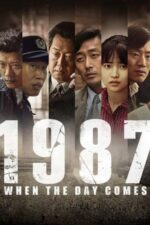Communism
2025,
GB, Comedy
2024,
US, Drama
2023,
US, Drama
2020,
IT, Drama
2017,
KR, Drama
2017,
US, Documentary
2015,
US, Drama
2013,
KR, Action
2013,
US, Family
2011,
US, Documentary
2009,
IT, Drama
2008,
US, Horror
2007,
RO, Drama
2006,
DE, Drama


























